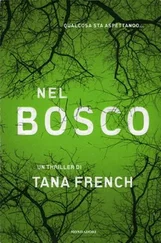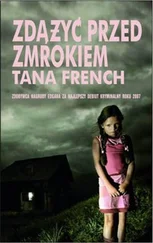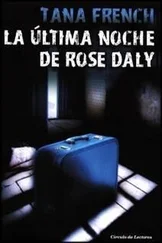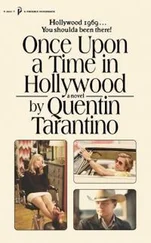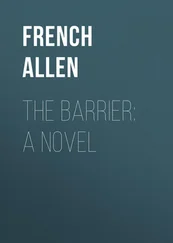“Depends,” Lena says. “How much of a worrier are you?”
“Depends. How close is the trouble?”
“You’re grand. They’re a few miles beyond you, up in the mountains.”
“Sounds good to me,” Cal says. “Johnny a farmer, or what?”
“Who knows what Johnny is,” Lena says. “He went off to London a year or two back.”
“Left Sheila high and dry,” Noreen says, with a mix of condemnation and satisfaction. “Some pal of his over there had a business idea that was going to make the pair of them millionaires, or so he said. I’m not holding my breath, and I hope Sheila’s not either.”
“Johnny was always a great man for the ideas,” Lena says. “Not so great for making them happen. You can relax. Any child of his, a crisp packet full of shaving foam would be more than they could organize.”
“Good to know,” Cal says. He has a feeling that one, at least, of Johnny Reddy’s kids may not take after his daddy.
“Now, Cal,” Noreen says, struck by a thought and pointing her dust cloth at him. “Weren’t you telling me only the other day, you were thinking of getting a dog? And wouldn’t that be the perfect way to put your mind at ease? Listen to me now: Lena’s dog’ll be whelping any day, and she’ll be wanting homes for the pups. Let you go with her now and have a look.”
“She hasn’t whelped yet,” Lena says. “It won’t do him much good staring at her belly.”
“He can see if he likes the cut of her. Go on.”
“Ah, no,” Lena says pleasantly. “I need my cup of tea.” Before Noreen can open her mouth again, she nods to Cal, says, “Nice to meet you,” and is gone into the back room.
“You’ll stay and have a cup of tea with us,” Noreen orders Cal.
“Appreciate it,” Cal says, “but I oughta be getting home. I didn’t take the car, and it looks like rain.”
Noreen gives an offended sniff, turns the radio louder and goes back to dusting, but Cal can tell from the occasional glance she shoots his way that she hasn’t given up that easy. He grabs groceries fast and more or less at random, before she can come up with a fresh scheme. At the last minute, when Noreen is already adding up his bill on the noisy old manual cash register, he throws in a carton of milk.
FIVE
Trey does come back the next day, and the ones after that. Sometimes he shows up around mid-morning; sometimes it’s mid-afternoon, which gives Cal the comforting impression that he does occasionally go to school, although he’s aware that this may be deliberate. The kid sticks around for an hour, or a couple, and mostly for some food. Then—in response to some mysterious inner alarm clock, or maybe just when he gets bored—he says, “Haveta go,” and leaves, tramping up the garden with his hands deep in his hoodie pockets, not looking back.
The first rainy day, Cal doesn’t expect to see him. He’s stripping wallpaper and singing the odd half line along with Otis Redding when a shadow crosses the light, and when he looks around, there Trey is at the window, watching him from inside a disreputable wax jacket a couple of sizes too small. Cal is momentarily dubious about inviting him in, but with rain dripping off the kid’s hood and the end of his nose, he doesn’t feel like he has much choice. He hangs the kid’s jacket on a chair to dry and gives him a scraper.
On sunny days they go back to the desk, but sunny days are getting scarcer as September runs itself down. More and more often, rain whips the house, and wind packs sodden leaves at the bases of walls and hedges. The squirrels are in a hoarding frenzy. Mart announces that this means a bastard of a winter ahead, and provides dramatic accounts of years when the townland was cut off for weeks and people froze to death in their own homes, although Cal fails to be properly impressed. “I’m used to Chicago,” he reminds Mart. “We don’t call it cold till our eyelashes freeze.”
“Different kind of cold,” Mart informs him. “This one’s sneaky. You wouldn’t feel it coming, not till it’s got you.”
Mart’s opinion of the Reddys turns out to match Noreen’s, only with more flourishes. Sheila Brady was a lovely girl from a decent family, with a fine pair of legs on her; she was planning to move to Galway and train as a nurse, except before she could get that far she fell for Johnny Reddy. He could talk the cross off an ass and never held a job for more than three months in his life, because nothing that would take him was good enough for him: “no kind of worker,” Mart says, with a depth of scorn that Cal and his squad reserved for granny-muggers. Sheila and Johnny had six kids, lived on benefits in some relative’s dilapidated cottage up in the hills—Mart does explain the relationship, in detail, but Cal loses track after three or four degrees—and now Johnny has fecked off, Sheila’s people have all died or moved away, and the family is as close as this place gets to trailer trash. Mart agrees with Noreen and Lena that the kids are unlikely to be above a little petty crime, but equally unlikely to have the capacity for anything high-level. “Holy God,” he says, amused, when Cal gives him the worried-city-boy spiel, “you’ve too much time on your hands. Get yourself a woman, like I told you. Then you’ll know what worry is.”
In fact Cal has more or less ruled out the possibility that the kid is planning on robbing him, given that he would be going about it in the dumbest possible way, and from what Cal can tell he appears to be far from dumb. Now that he knows a little bit about Trey’s probable family, other, more likely scenarios present themselves: the kid is getting picked on and needs protection, the kid is being abused one way or another and wants to tell someone, the kid’s mom is a drunk or on drugs or getting beat up by a boyfriend and he wants to tell someone, the kid wants Cal to track down his wayward daddy, or the kid is looking to establish some kind of alibi for something he shouldn’t be doing. Cal feels that the locals, biased by Johnny Reddy’s fecklessness, may be underrating his son’s abilities in that department. And, while he has every reason to know that kids can on occasion rise above a shitty family, he also has every reason to know that on most occasions it doesn’t turn out that way.
He pokes around the subject of Johnny Reddy a little, giving Trey an opening if that’s where he’s headed, but Trey shuts that down right quick. “Yeah, we can use this,” Cal says, examining his first attempt at chiseling out a groove. “You’re pretty handy, kid. You help out your dad with stuff like this?”
“Nah,” Trey says. He takes back the shelf and gives one end of the groove a few extra taps, squinting low over the wood. He likes things done right. Stuff that Cal would be fine with, Trey shakes his head and goes back over it two or three times before he’s satisfied.
“So what do you do with him?”
“Nothing. He went off.”
“Where to?”
“London. He rings us sometimes.”
This pretty much confirms Trey as a Reddy, unless London is a common destination for the local deadbeat dads. “My dad went off a lot,” Cal says. He’s aiming for rapport, but Trey seems unimpressed. “You miss him?”
Trey shrugs. Cal is getting the hang of Trey’s shrugs, which are many and nuanced. This one means the subject is closed due to lack of interest.
This leaves Cal with two main possibilities: Trey is doing something bad, or something bad is being done to him. So far he hasn’t come up with a good way to broach either of those. He’s aware that, if he fucks it up, Trey will be gone for good. This is fine by Cal if Trey is the one making the trouble, but his newfound talent for letting things be doesn’t stretch to an abused kid. So he’s dealing with Trey the same way he did at the start: going about his own business, and letting the kid come closer in his own time.
Читать дальше



